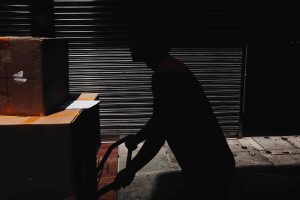 Although most ordinary people talk about “drug crime” as if it were one giant part of criminal law, there are many important distinctions between different drug-related crimes. One of them is the difference between drug dealing and drug trafficking. Let us take the case of David Price, who faced life imprisonment after being found guilty of running an illicit drug empire.
Although most ordinary people talk about “drug crime” as if it were one giant part of criminal law, there are many important distinctions between different drug-related crimes. One of them is the difference between drug dealing and drug trafficking. Let us take the case of David Price, who faced life imprisonment after being found guilty of running an illicit drug empire.
Drug dealing often happens on the streets when middlemen and low-level distributors try to offload the controlled drugs onto the street. They are the people who sell on a one-to-one basis or who provide small shopping facilities for drugs. This is a different crime from trafficking, which often includes international routes. The failure to make these distinctions clear has meant that many people are serving sentences that are longer than they would ordinarily be if the right procedure was followed.
Why is the Distinction Between Dealing and Trafficking so Important?
For a start, the punishments for each can vary. The courts are going to be a lot harsher on someone who has imported a ton of pure cocaine than someone that has distributed small amounts that are worth no more than $1,000. Sometimes, the trafficking can come with a great deal of violence and even murder as the big bosses in the network try to keep a firm control over all dealings. That is why the courts are willing to send many people to jail for longer even if it leads to mass incarceration in the USA.
Another potential difference relates to how authority actually prosecutes. In the case of Price, the FBI was involved. Because of this, it became a federal crime. The fact that the defendant also shot a man in front of his 3-year-old was one of the most aggravating features of the case. Many of the people who run drug empires rely on excessive violence and intimidation in order to make them work away from the prying eyes of the police.
What does the Law in Chicago Say?
The latest provisions are to be found in statute number 720 ILCS 570/401. This is part of the Illinois Controlled Substances Act. This law basically states that it is a crime to be in possession of or to be a manufacturer of a controlled substance. The law also covers fakes or counterfeits of the original controlled substance. The listed controlled substances include the following.
- All opiates and their derivatives: Examples include opium and heroin.
- All drugs or substances that can cause hallucinations: Examples include LSD.
- All substances that have a depressing or stimulating effect on the central nervous system of a human being when they are not being used as part of an authorized prescription.
The manufacture of controlled substances is treated differently from the transportation and distribution, although they may all attract very serious penalties including life imprisonment. That is why it is always important to have experienced legal professionals to deal with such complex cases.
Some Problems with the Current Drug Policy
Many experts have complained that the punishments for possession and dealing are just too high when compared to other violent crimes such as sexual assault. Others have argued that this is a reflection of institutionalized racism in America, which tends to imprison ethnic minorities more often and for far longer than white people.
Then, there is the problem of trying to work out whether the person who is transporting or dealing with the drug is the main agent behind the enterprise. Quite often, these low-level dealers are being blackmailed or coerced into dealing when they do not want to do it. Others are already addicts who need the money because they cannot earn enough doing a legitimate job.
Actions When Charged
It is imperative to find a competent attorney to handle the case. They will advise you on how and if you can reduce the charge from trafficking to low-level dealing. Your attorney will also ensure that there is sufficient evidence, or else they will call for the case to be dismissed summarily. You can contact David Freidberg Attorney at Law at telephone number 312-560-7100 for further assistance.
(image courtesy of Maique Madeira)
 Chicago Criminal Lawyer Blog
Chicago Criminal Lawyer Blog


